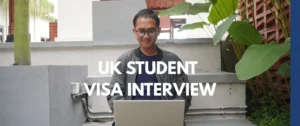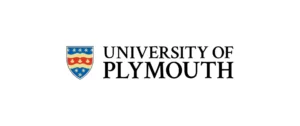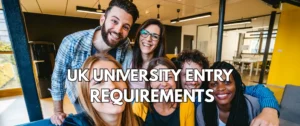Planning to study in the UK and wondering if you can bring your family along? The UK student dependent visa allows certain international students to have their spouse, partner, or children join them during their studies. However, strict rules introduced in January 2024 have narrowed eligibility, making it vital to understand the conditions and qualifying programmes. In this 2025 guide, we’ll break down everything you need to know about the UK student dependent visa from who can apply to the specific courses that qualify ensuring you’re fully prepared to bring your loved ones to Britain.
What Is a UK Student Dependent Visa?
The UK student dependent visa (officially a “Student Route Dependant Visa”) lets eligible family members of Student visa holders live with them in the UK. Dependants typically include:
- A spouse or civil partner.
- An unmarried partner (if you’ve lived together for at least two years).
- Children under 18 at the time of application.
Once granted, dependants can work (with minor restrictions), study, and travel freely in and out of the UK for the duration of the student’s visa. But not all students can sponsor dependants—eligibility hinges on your course and circumstances.
Who Can Bring Dependants in 2025?
Since January 2024, the UK government has tightened rules to reduce net migration, limiting which students can bring family members. As of 2025, you can only sponsor dependants if you meet one of these criteria:
Postgraduate Research Students (RQF Level 8 or Higher)
- Eligible Programmes: You must be enrolled in a full-time postgraduate research course, such as a PhD, Doctorate, or a research-based higher degree (e.g., MPhil), lasting at least 9 months.
- What Qualifies as Research-Based?: The UK Immigration Rules define this as a programme where the research component outweighs taught elements in terms of student effort. This typically excludes taught master’s degrees (RQF Level 7) unless they’re heavily research-focused, which is rare. Check your course details or consult your university’s admissions team to confirm.
- Example: A 3-year PhD in Biology at the University of Oxford qualifies, but a 1-year taught MSc in Management does not.
Government-Sponsored Students
- Eligible Programmes: You must be a full-time student on a course lasting 6 months or longer, fully sponsored by a national government (UK or overseas).
- What Counts as Sponsorship?: This means a scholarship or funding award from a government body (e.g., Chevening Scholarship, national ministry grants). It must cover your studies, though it doesn’t need to fund living costs or dependants directly.
- Example: A bachelor’s student funded by their country’s education ministry for a 1-year exchange programme qualifies, but a self-funded undergraduate does not.
Existing Students (Pre-2024 Rules)
- If you began your course before January 1, 2024, and already have dependants in the UK (or they were granted visas previously), they can extend their stay under the old rules. This applies even if your course doesn’t meet the new criteria, as long as your Student visa remains valid.
Key Restriction: Students on undergraduate degrees, taught master’s courses, or short-term programmes (under 6 months) no longer qualify unless fully government-sponsored. This shift has significantly reduced dependent visa options for most international students.

Conditions for a UK Student Dependent Visa
Beyond course eligibility, several requirements must be met by both the student (sponsor) and their dependants:
1. Relationship Proof
- Spouse/Civil Partner: Provide a marriage or civil partnership certificate recognised by UK law.
- Unmarried Partner: Submit evidence of living together for 2+ years (e.g., joint tenancy agreements, utility bills).
- Children: Birth certificates linking the child to the student (and their partner, if applicable). Both parents must be in the UK or applying to come, unless you have sole custody or exceptional circumstances.
2. Financial Requirements
- You must prove you can support your dependants without relying on public funds (e.g., welfare benefits).
- Funds Needed:
- £845/month per dependant if studying in London (up to 9 months).
- £680/month per dependant outside London.
- For courses over 9 months, show 9 months’ worth upfront (e.g., £7,605 for one dependant in London).
- Evidence: Bank statements, scholarship letters, or savings covering at least 28 days before applying.
3. Health and Character Checks
- Dependants from certain countries (listed on GOV.UK) must pass a tuberculosis (TB) test.
- Applicants over 16 may need a criminal record certificate, depending on their nationality and residency history.
4. Immigration Health Surcharge (IHS)
- Each dependant pays £1,035 annually (2025 rate, subject to change) for NHS access, on top of the student’s IHS fee.
5. Application Timing
- Dependants can apply simultaneously with your Student visa or later, but only after your visa is granted. They must apply before arriving in the UK if outside, or before their current visa expires if already here.
How to Apply for a Student Dependent Visa
The process is straightforward but requires precision:
- Online Application: Use GOV.UK’s visa portal—each dependant needs a separate form.
- Documents: Submit passports, relationship proof, financial evidence, TB test results (if required), and your Confirmation of Acceptance for Studies (CAS).
- Fees: £1,846 per person from outside the UK; £1,048 if applying inside, plus the IHS.
- Biometrics: Book an appointment at a visa centre for fingerprints and photos (free).
- Processing: Typically 8–12 weeks, or 1 day with the Super Priority Service (£800 extra).
Rights and Restrictions for Dependants
- Work: Dependants can work full- or part-time in most roles, except as professional sportspersons or trainee doctors/dentists.
- Study: No restrictions—they can enrol in UK schools or universities.
- Duration: Their visa aligns with yours, ending on the same date.
What Programmes Don’t Qualify in 2025?
Most international students won’t be eligible to bring dependants due to the 2024 changes. Non-qualifying courses include:
- Taught master’s degrees (e.g., MA, MSc) unless explicitly research-based and doctoral-level.
- Undergraduate degrees (e.g., BA, BSc) unless government-sponsored for 6+ months.
- Short courses under 6 months, regardless of funding.
If your course doesn’t qualify, dependants could explore alternatives like a Standard Visitor Visa (up to 6 months) for short stays, though this prohibits work or study.
Recent Updates and Exceptions
- Graduate Route: If you switch to the Graduate Visa after your studies, dependants already in the UK during your course can extend their stay. New dependants can’t join under this route.
- Children Born in the UK: A child born during your studies can apply as a dependant, even if your course started after January 2024, provided you meet other criteria.
Final Thoughts
The UK student dependent visa in 2025 offers a lifeline for families, but only for specific groups, PhD researchers and government-sponsored students. If you’re eligible, it’s a fantastic way to keep your loved ones close while pursuing your education. Not sure if your programme qualifies? Double-check with your university and review the latest Immigration Rules on GOV.UK. Start planning early, gather your documents, and take the first step towards studying in the UK with your family by your side!










One Response
Hello,
I am interested in applying for a research Master’s program starting in the September 2025 intake. I hold a Bachelor’s degree in Law and have completed a Master’s degree in Human Rights and Multiculturalism from the University of South-Eastern Norway. I would like to know which research Master’s programs I may be eligible to apply for, considering my academic background. My husband will apply for dependent visa.